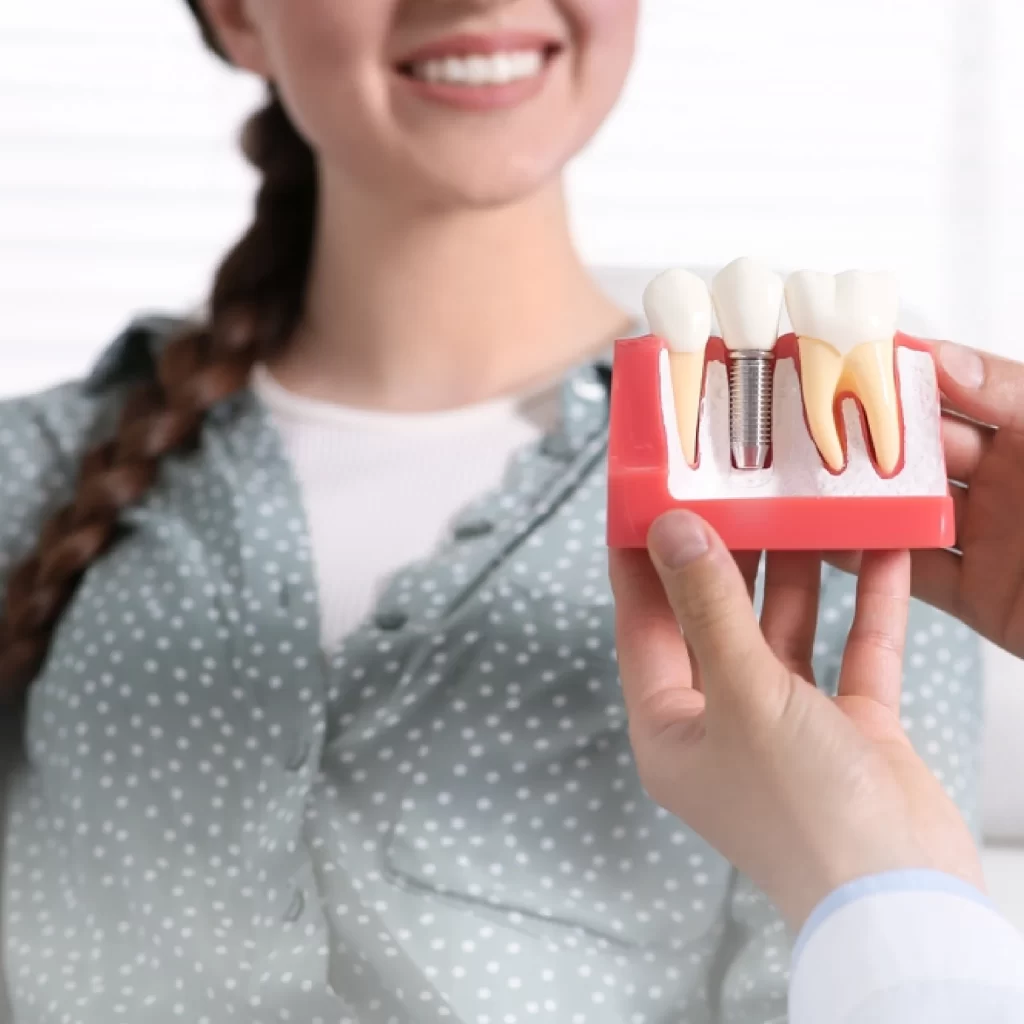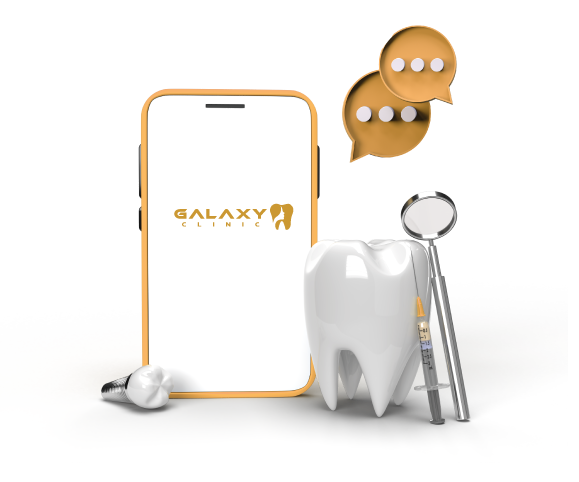Implant teeth pain is negligible, the process occurs by the surgeon dentist who starts the dental implant by opening up the tissue in your mouth then drill one or more titanium rods into the bone inside your gums with no implant teeth pain. This provides Stonge root for replacement missing teeth and implant new ones. This process occurs under local anesthesia so you will not feel pain during the dental implant surgery.
The benefits of teeth implants over other types of dental replacement options
Having a robust set of teeth not only enhances your ability to display an attractive smile but also plays a pivotal role in your overall well-being. Tooth loss can significantly hinder everyday activities like chewing and speaking.
In cases of tooth loss resulting from various factors such as gum disease, physical injury, or medical conditions like diabetes or arthritis, it becomes essential to consider tooth replacement options.
The difference between dental implant methods:
Bridges: A bridge is a long-lasting dental option employed to replace one or multiple missing teeth by securely affixing an artificial tooth to adjacent teeth, effectively closing the gap between them. teeth implant pain
Dentures: Dentures are removable replacements for missing teeth and the surrounding oral tissues. They consist of replacement teeth attached to a gum-colored plastic base, often supported by a metal framework that ensures stability within the mouth.
Dental Implant: A dental implant is a titanium-based artificial replacement for a tooth’s root. Once it is surgically implanted in the jaw, it serves as a secure anchor for an artificial tooth. teeth implant pain
Is it typical to undergo discomfort following the placement of dental implants?
The recovery period may involve experiencing implant teeth pain for a few days, which can be effectively alleviated with medication. If the pain persists beyond a few days or intensifies, seeking medical attention may be necessary.
Does the procedure of dental implant surgery hurts?
Implant teeth Pain should not be experienced during implant surgery due to the administration of anesthesia. This will typically involve the use of local anesthesia, and in some cases, supplementary sedation or general anesthesia may be included. Your oral surgeon will discuss the available anesthesia options with you before the surgery.
To cater to your specific requirements, a particular type of anesthesia may be recommended to ensure you remain pain-free throughout the procedure.

How long the implant teeth pain lasts?
Discomfort following a successful dental implant procedure should be of a temporary nature, provided that the healing process proceeds as expected. Typically, you may experience pain for a period ranging from 3 to 5 days after the procedure. Implant teeth pain medication may only be required for 1 or 2 days.
It is conceivable that you might be able to resume your regular daily activities as early as the day after the procedure if you feel comfortable doing so. However, you might continue to experience swelling, bruising, and jaw stiffness for a slightly longer duration. These symptoms should progressively improve and lessen over a period of 7 to 10 days after the surgery.
Dental implant contraindications
In addition to assessing the patient’s overall health, it’s crucial to evaluate the existence of preexisting periodontal disease, such as peri-implantitis. Peri-implantitis is a condition similar to periodontitis, characterized by inflammation of the gingival tissues, formation of pockets, and ultimately, bone loss that can result in implant failure. Implants positioned near teeth with periapical lesions may also face a higher risk of failure.
Another patient-related factor associated with peri-implant microbiota and the potential for disease and implant failure is smoking. A meta-analysis has revealed a significant increase in the relative risk of implant failure among individuals who smoke more than 20 cigarettes per day compared to nonsmokers. Another meta-analysis conducted by Mustapha et al. concluded that smokers had a 140.2% higher implant failure rate than nonsmokers.
Other factors linked to implant failure include bruxism, radiation therapy, and osteoporosis.
The presence of dental caries on neighboring teeth is not a contraindication for implant placement. However, any lesions should be treated and teeth should be restored before proceeding with surgical procedures.
References :
https://emedicine.medscape.com/article/2051533-overview?form=fpf


